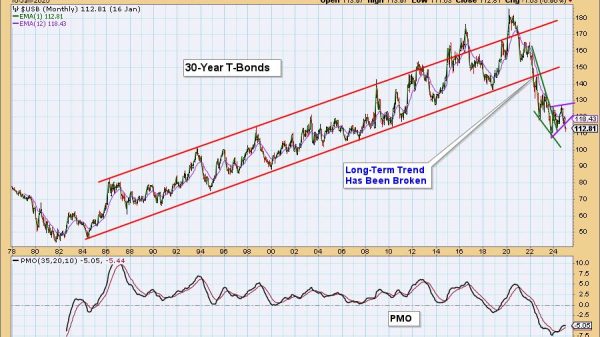Crack-Up Capitalism will be of interest to many readers of The Austrian because of what it says about Murray Rothbard; and for the most part, I shall limit my review to discussing this. The main point of the book is easy to grasp. In recent decades, the notion of a centralized state has come under fire in various ways, including attempts to secede, to create “enterprise zones” within states, and to establish societies without a state at all. Quinn Slobodian, a professor of the history of ideas at Wesleyan University, does not approve of these developments. They replace democracy with control by capitalists, who exploit workers by offering them low wages and suppressing labor unions and civil liberties.
Although Slobodian teaches the history of ideas, his own ideas lack analytical sharpness. He thinks in pictures, and indeed is very good at giving readers a vivid sense of place. He is particularly effective in describing architecture and has read a great deal. But that is about all I can say in his favor.
Let’s begin with a minor example of his lack of rigor to illustrate the problem. He notes that there are two sorts of libertarians. “Although libertarianism contains many schools and tendencies, they are united by the belief that the state’s role is to protect the market, not to own property, manage resources, direct companies, or deliver services like health care, housing, utilities, or infrastructure. Maintenance of inner and outer security, the protection of private property, and the sanctity of contract, these should be the main role of the government. The main difference . . . is between those who believe in a minimal state (sometimes called minarchists) and those who believe in no state at all (known as anarcho-capitalists.).” Slobodian doesn’t notice that he has said both that libertarians are united by the belief that the state has limited functions and that some libertarians don’t believe in a state at all. And if these limited functions should be “the main role of the government,” does this mean you can be a libertarian and think the government can do other things as well?
Now let’s see how he deals with Rothbard. According to Rothbard, everyone is a self-owner and can acquire property through a Lockean process of appropriation. But, says Slobodian, Rothbard thought it was all right to take away land from Indians. “Rothbard gave a special status to the pioneer and the settler, whom he saw as the ultimate libertarian actor—‘the first user and transformer’ of territory. He placed the ownership of ‘virgin land’ seized and made valuable by labor at the core of ‘the new libertarian creed.’ To the objection that settlers never found any land truly empty of humans, Rothbard had a rebuttal. North America’s indigenous people, even if they did have a right to the land they cultivated under natural law, had lost this right through their failure to hold it as individuals. Indigenous people, he claimed, ‘lived under a collectivistic regime.’ Because they were proto-communists, their claim to the land was moot.”
Where does Rothbard say this? Slobodian refers us to a page in the first volume of Conceived in Liberty, but the book is strikingly at variance with Slobodian’s account of it. The cited passage is about the attempt of Roger Williams to buy land from Indians in Rhode Island. A few pages before, Rothbard says, “Williams proceeded to strike another fundamental blow at the social structure of Massachusetts Bay. He denied the right of the king to make arbitrary grants of the land of Massachusetts to the colonists. The Indians, he maintained, properly owned the land and therefore the settlers should purchase the land from them. This doctrine attacked the entire quasi-feudal origin of American colonization in arbitrary land grants in the royal charters, and it also hit at the policy of ruthlessly expelling the Indians from their land. Williams, indeed, was the rare white colonist courageous enough to say that full title to the soil rested in the Indian natives, and that white title could only be validly obtained by purchase from its true owners.”
Rothbard agrees with Williams’s doctrine. He says that individual Indians owned the land that they cultivated first, exactly the opposite of the view that Slobodian imputes to him, that these Indians lost this right because they ceased to cultivate the land individually. In the passage that Slobodian relies on, Rothbard also says, “While Williams’ heart was in the right place in insisting on purchasing all land voluntarily from the Indians, there were important aspects of the land problem that he had not thought through. While the Indians were certainly entitled to the land they cultivated, they also (1) laid claim to vast reaches of land which they hunted but which they did not transform by cultivation, and (2) owned the land not as individual Indians, but as collective tribal entities. In many cases the Indian tribes could not alienate or sell the lands, but only lease the use of their ancestral domains. As a result, the Indians also lived under a collectivistic regime that, for land allocation, was scarcely more just than the English governmental land grab against which Williams was properly rebelling. Under both regimes, the actual settler—the first transformer of the land, whether white or Indian—had to fight his way past a nest of arbitrary land claims by others, and pay their exactions until he could formally own the land.” Rothbard in the passage consistently maintains his libertarian position that individuals acquire land by bringing it into use. If someone does this, he can’t be deprived of his land, and there are no exceptions for Indians or members of any other group.
Slobodian also offers a misleading account of Rothbard’s position on the Civil War, in this case carrying out distortion through omission. Slobodian says that “Rothbard held a revisionist interpretation of the Civil War. He compared the Union cause to the adventurist foreign policy of the United States in the 1990s: America roved the world looking for monsters to slay in the name of democracy and human rights, a perverse campaign whose outcome was death and destruction rather than any of the stated aims.” A few pages later, Slobodian says, “One of the last talks Rothbard gave before his death took place on a plantation outside Atlanta and envisioned the day when the statues of Union generals and presidents would be ‘toppled and melted down’ like the statue of Lenin in East Berlin, and monuments to Confederate heroes be erected in their place.”
From Slobodian’s account, a reader would get the impression that Rothbard was a neo-Confederate who did not like statues that honored those opposed to slavery. He in fact opposed statues that honored those guilty of war crimes. He said in the talk, “We remember the care with which the civilized nations had developed classical international law. Above all, civilians must not be targeted; wars must be limited. But the North insisted on creating a conscript army, a nation in arms, and broke the 19th-century rules of war by specifically plundering and slaughtering civilians, by destroying civilian life and institutions so as to reduce the South to submission. Sherman’s infamous March through Georgia was one of the great war crimes, and crimes against humanity, of the past century-and-a-half. Because by targeting and butchering civilians, Lincoln and Grant and Sherman paved the way for all the genocidal honors of the monstrous 20th century. There has been a lot of talk in recent years about memory, about never forgetting about history as retroactive punishment for crimes of war and mass murder. As Lord Acton, the great libertarian historian, put it, the historian, in the last analysis, must be a moral judge. The muse of the historian, he wrote, is not Clio, but Rhadamanthus, the legendary avenger of innocent blood. In that spirit, we must always remember, we must never forget, we must put in the dock and hang higher than Haman, those who, in modern times, opened the Pandora’s Box of genocide and the extermination of civilians: Sherman, Grant, and Lincoln. Perhaps, some day, their statues, like Lenin’s in Russia, will be toppled and melted down; their insignias and battle flags will be desecrated, their war songs tossed into the fire. And then Davis and Lee and Jackson and Forrest, and all the heroes of the South, ‘Dixie’ and the Stars and Bars, will once again be truly honored and remembered” (emphasis original).
Slobodian also does not tell his readers that Rothbard strongly opposed slavery. Far from agreeing with attempts to make excuses for the “peculiar institution,” he wrote this in a memorandum to the Volker Fund in 1961, and his position did not change after that: “The road to Civil War must be divided into two parts: 1. the causes of the controversy over slavery leading to secession, and 2. the immediate causes of the war itself. The reason for such a split is that secession need not have led to Civil War, despite the assumption to the contrary by most historians. The basic root of the controversy over slavery to secession, in my opinion, was the aggressive, expansionist aims of the Southern ‘slavocracy.’ Very few Northerners proposed to abolish slavery in the Southern states by aggressive war; the objection—and certainly a proper one—was to the attempt of the Southern slavocracy to extend the slave system to the Western territories. The apologia that the Southerners feared that eventually they might be outnumbered and that federal abolition might ensue is no excuse; it is the age-old alibi for ‘preventive war.’ Not only did the expansionist aim of the slavocracy to protect slavery by federal fiat in the territories as ‘property’ aim to foist the immoral system of slavery on Western territories; it even violated the principles of states’ rights to which the South was supposedly devoted—and which would logically have led to a ‘popular sovereignty’ doctrine. It is here that we must split our analysis of the ‘causes of the Civil War’; for, while this analysis leads, in my view, to a ‘pro- Northern’ position in the slavery-in-the-territories struggles of the 1850s, it leads, paradoxically, to a ‘pro-Southern’ position in the Civil War itself. For secession need not, and should not, have been combated by the North; and so we must pin the blame on the North for aggressive war against the seceding South. The war was launched in the shift from the original Northern position (by Garrison included) to ‘let our erring sisters depart in peace’ to the determination to crush the South to save that mythical abstraction known as the ‘Union’ —and in this shift, we must put a large portion of the blame upon the maneuvering of Lincoln to induce the Southerners to fire the first shot on Fort Sumter—after which point, flagwaving could and did take over.”
Slobodian’s book has elicited praise from some eminent leftist worthies, but it isn’t what it is cracked up to be.






















